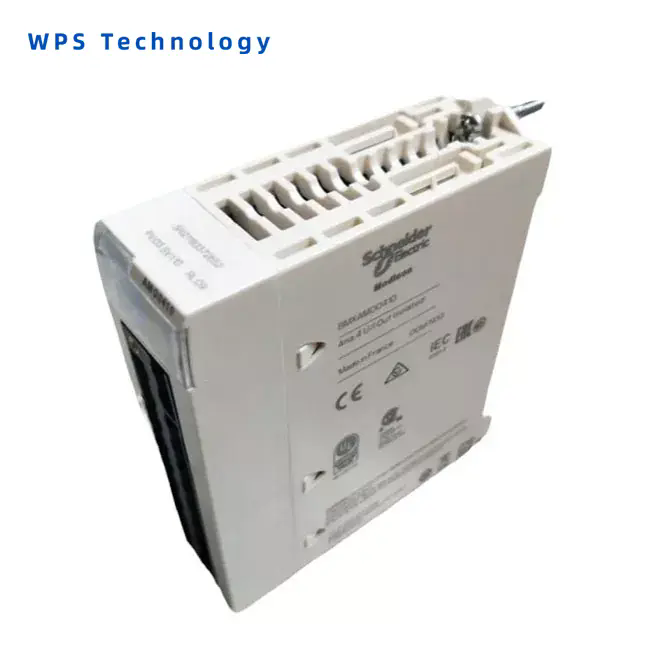Why Are Siemens Modules a Game Changer for Industrial Automation?
2025-01-02
In the world of industrial automation, the choice of modules and control systems can significantly impact efficiency, productivity, and the overall reliability of manufacturing processes. One brand that stands out in the field of automation is Siemens. Siemens modules, known for their precision and versatility, are widely used across industries ranging from manufacturing and energy to transportation and infrastructure. But why exactly are Siemens modules considered a game changer for industrial automation, and how do they improve operations in various sectors?
In this blog, we’ll explore the importance of Siemens modules, their different types, and why they are integral to modern automation systems.
What Are Siemens Modules?
Siemens modules refer to a wide range of hardware and software components developed by Siemens for use in industrial automation systems. These modules are designed to optimize control, data processing, and communication in automated environments. They form an essential part of Siemens' larger automation and control systems, including their well-known PLC (Programmable Logic Controllers), HMI (Human-Machine Interfaces), and SCADA (Supervisory Control and Data Acquisition) systems.
Siemens modules can include everything from input/output (I/O) modules that handle sensor and actuator signals, to communication modules that facilitate data transfer between devices, to power supply modules that ensure systems run smoothly. These modules can be integrated into existing systems or used in new setups for a variety of applications.
Why Are Siemens Modules So Important for Industrial Automation?
1. Flexibility and Scalability
One of the most significant advantages of Siemens modules is their flexibility. These modules can be easily integrated into a variety of systems, making them ideal for businesses of all sizes. Whether you're running a small manufacturing line or overseeing a large-scale production plant, Siemens offers modules that can be customized to meet specific needs.
The modular design of Siemens automation components allows users to scale their systems as needed. You can start with a basic setup and expand it over time, adding additional I/O, power, or communication modules as your needs evolve. This scalability ensures that the system grows with your business, without the need for a complete overhaul.
2. Reliability and Durability
Siemens has built a strong reputation for creating high-quality, reliable modules that can withstand the demanding conditions of industrial environments. The harsh conditions in manufacturing plants, warehouses, or outdoor settings can be tough on equipment, but Siemens modules are engineered for durability. Many Siemens modules are designed to function in extreme temperatures, humidity, and vibration, ensuring your systems keep running smoothly no matter the environment.
The redundancy and fail-safes built into Siemens automation systems also ensure that they continue to perform even if one component fails, which is essential for maintaining high levels of uptime in critical applications.
3. Advanced Communication Capabilities
Communication is at the heart of modern industrial automation. Siemens modules are equipped with advanced communication technologies, making it easy to link different parts of your system. Whether you're using Ethernet, PROFINET, Modbus, or other communication protocols, Siemens modules support a variety of standards for fast and secure data transfer.
These communication capabilities allow for seamless interaction between various devices, including PLCs, sensors, actuators, and HMIs. With Siemens modules, industrial networks can be optimized for speed and efficiency, enabling real-time data monitoring, remote diagnostics, and even predictive maintenance.
4. Integration with Industry 4.0 Technologies
Siemens modules are designed with Industry 4.0 in mind, providing the necessary infrastructure for connecting your industrial systems to modern technologies like the Internet of Things (IoT), cloud computing, and big data analytics. With their powerful processing and communication capabilities, Siemens modules allow you to collect and analyze data from different parts of the production process in real-time.
This integration with Industry 4.0 technologies offers several advantages, including increased process optimization, better decision-making, and the ability to forecast maintenance needs, minimizing downtime and maximizing operational efficiency.
5. Energy Efficiency
In an era where sustainability is becoming increasingly important, Siemens modules are engineered to support energy-efficient operations. The modules feature advanced control algorithms and power-saving features that optimize energy use, reducing the environmental impact and operational costs of running industrial processes.
By integrating Siemens modules into your control systems, you can improve energy efficiency across your operations, helping your company stay ahead of regulatory requirements and contribute to sustainability goals.
Types of Siemens Modules and Their Applications
Siemens offers a diverse range of modules, each designed for specific functions. Here are some of the most common types:
1. Input/Output (I/O) Modules
I/O modules are used to connect sensors, actuators, and other field devices to the control system. These modules help convert real-world signals into digital information that the PLC or control system can process. Siemens I/O modules are available in various configurations, including digital, analog, and mixed signals, offering flexibility for different types of inputs and outputs.
2. Power Supply Modules
Power supply modules ensure that the automation system has a consistent and reliable power source. These modules help convert AC voltage to DC voltage, providing the necessary power for the PLC, sensors, actuators, and other connected devices. Siemens power supply modules are built to meet high standards for reliability and energy efficiency.
3. Communication Modules
Communication modules enable data exchange between different devices within an automation system. Whether it's Ethernet-based communication for high-speed data transfer or protocols like PROFINET or Modbus for more specialized needs, Siemens offers communication modules that can seamlessly integrate different devices into your system, supporting remote diagnostics, monitoring, and control.
4. Safety Modules
Safety is paramount in industrial environments, and Siemens provides safety modules that integrate safety functions into your automation system. These modules ensure that safety protocols, such as emergency stops, machine safeguarding, and monitoring of critical parameters, are met to prevent accidents and ensure compliance with safety standards.
5. Controller Modules
At the core of any automation system are the controller modules. Siemens offers a variety of PLCs and distributed control system modules that provide the processing power and control necessary for automation tasks. Whether you're managing a simple process or a complex production line, Siemens controllers deliver the speed, flexibility, and reliability you need to keep things running efficiently.
How Siemens Modules Help Improve Your Business
1. Reduced Downtime and Increased Efficiency
With reliable and high-performance modules, Siemens automation systems help minimize system failures and downtime. Predictive maintenance, enabled by real-time monitoring and analytics, allows businesses to address potential issues before they disrupt operations.
2. Streamlined Operations
The integrated design of Siemens modules ensures that all components of your automation system communicate seamlessly, optimizing the flow of information across your operations. This leads to better process control, improved workflow efficiency, and reduced chances of errors.
3. Cost Savings
By improving the efficiency of your systems and preventing downtime, Siemens modules contribute to long-term cost savings. Additionally, the scalability of Siemens automation solutions means you can grow your system as needed, avoiding overinvestment in infrastructure from the outset.
Conclusion
Siemens modules are a cornerstone of modern industrial automation, offering flexibility, reliability, advanced communication, and energy efficiency. By incorporating Siemens modules into your automation system, you can ensure that your processes run smoothly, your equipment stays protected, and your workforce remains safe. Whether you are building a new system or upgrading an existing one, Siemens modules are the key to staying ahead in an increasingly competitive market.



